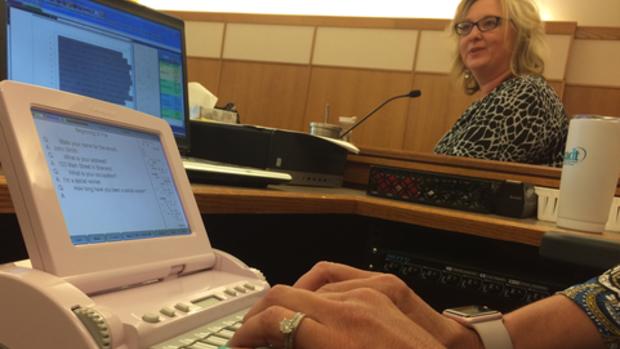The Olympics of Court Reporting

Over the last few decades the number of practicing court
reporters across the country has steadily declined, leading to canceled court
sessions and, in some areas, difficulty finding enough court reporters to cover
depositions. Since court reporting can be a lucrative career, why is there a
shortage of reporters?
It’s true that the profession can be lucrative, and
freelance reporters have the added benefit of a somewhat flexible schedule.
But, court reporting is also physically demanding. Both
stenotype reporters and voice writers experience repetitive stress injuries and
back strain, and some are forced to retire early.
Also, the hours and pay can be wildly unpredictable. Though
freelance reporters can generally choose which assignments to accept, many work
more than 40 hours a week on a regular basis and don’t know what their exact
schedule will be from one week to the next. Because of this unpredictability,
every court reporter can tell you about the time they had to work through
Christmas, Thanksgiving, or other important days, or had work for 24 hours
straight in order to make the plane for a family vacation. (Usually this is due
to last-minute expedites or a deposition that was scheduled for one hour going
for eight hours – or both.)
Official reporters have the benefit of a steady salary and
benefits, but any transcripts ordered must be prepared outside of court time
and transcripts for indigent defendants are paid at a low rate set by the
courts.
In addition, for stenotype court reporting students
particularly, it’s difficult to achieve the typing speed and accuracy necessary
to pass certification exams.As a result, enrollment in traditional court
reporting schools has been down for decades, and many have closed entirely.
As existing court reporters retire, there are fewer and
fewer new traditional court reporters available to take their place.To address
this shortage some states cancel sessions of court when there is no reporter
available. Other states have chosen to outfit their courtrooms with electronic
recording systems operated by the courtroom clerk (sometimes with disastrous
results). When people’s lives, liberty, and property are on the line, neither
of those options are acceptable.
The best solution is to embrace electronic court reporting.
An electronic court reporter uses pecialized software and high-quality
audio-visual equipment to record testimony. The software allows them to record
each speaker’s audio feed on a separate track to ensure complete accuracy of
the transcript and to take contemporaneous notes of the proceedings within the
software, which are then linked to that spot in the audio record. Like their
stenotype and voice writer counterparts, electronic reporters pass
certification exams testing their knowledge of court and deposition procedure,
grammar and language competency, and ability to produce an accurate transcript.
They are also held to the same ethical and professional standards as other
court reporters.
When people are involved in civil or criminal litigation the
stakes are high. Litigants should not be forced to face long delays before they
have their day in court, and deserve a high-quality record to protect their
rights. Court administrators and court reporting firms should embrace
electronic court reporters to address the court reporter shortage.